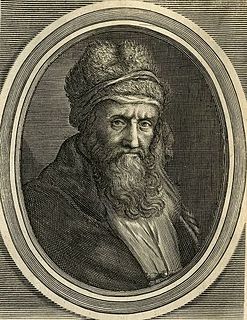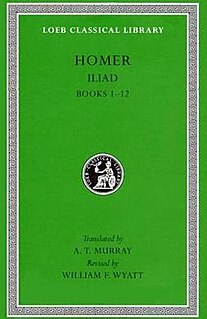The Twelfth Letter of Plato, also known as Epistle XII or Letter XII, is an epistle that tradition has ascribed to Plato, though it is almost certainly a literary forgery. Of all the Epistles, it is the only one that is followed by an explicit denial of its authenticity in the manuscripts. In the Stephanus pagination, it spans 359c–e of Vol. III.

An epistle is a writing directed or sent to a person or group of people, usually an elegant and formal didactic letter. The epistle genre of letter-writing was common in ancient Egypt as part of the scribal-school writing curriculum. The letters in the New Testament from Apostles to Christians are usually referred to as epistles. Those traditionally attributed to Paul are known as Pauline epistles and the others as catholic epistles.

Plato was an Athenian philosopher during the Classical period in Ancient Greece, founder of the Platonist school of thought, and the Academy, the first institution of higher learning in the Western world.
Literary forgery is writing, such as a manuscript or a literary work, which is either deliberately misattributed to a historical or invented author, or is a purported memoir or other presumably nonfictional writing deceptively presented as true when, in fact, it presents untrue or imaginary information.
Contents
Like the Ninth Letter, the Twelfth Letter is purportedly addressed to Archytas. It thanks him for sending Plato some treatises, which it then goes on to praise effusively, declaring its author worthy of his ancestors and including in their number Myrians, colonists from Troy during the reign of Laomedon. It then promises to send to Archytas some of Plato's unfinished treatises.
The Ninth Letter of Plato, also called Epistle IX or Letter IX, is an epistle that is traditionally ascribed to Plato. In the Stephanus pagination, it spans III. 357d–358b.

Archytas was an Ancient Greek philosopher, mathematician, astronomer, statesman, and strategist. He was a scientist of the Pythagorean school and famous for being the reputed founder of mathematical mechanics, as well as a good friend of Plato.

In history, a colony is a territory under the immediate complete political control and occupied by settlers of a state, distinct from the home territory of the sovereign. For colonies in antiquity, city-states would often found their own colonies. Some colonies were historically countries, while others were territories without definite statehood from their inception.
Diogenes Laërtius preserves this letter in his Lives and Opinions of Eminent Philosophers , as well as a letter from Archytas which presumably occasioned the Twelfth Letter; [1] This letter points to the treatises having been those of Ocellos of Lucania, a Pythagorean. Because the writings which are attributes to Ocellos are forgeries from the First Century BC, the Twelfth Letter is probably also a forgery, and by the same forger, intended to stamp the treatises with Plato's authority. [2] There is no other mention of a Trojan colony in Italy from the reign of Laomedon, let alone of Lucania or the Lucani having been descended from the otherwise unknown "Myrians." [3] R. G. Bury also notes that the Twelfth Letter, along with the Ninth, spell Archytas with an α, whereas Plato spells it in more authoritative epistles with an η (Αρχύτης). [4]

Diogenes Laërtius was a biographer of the Greek philosophers. Nothing is definitively known about his life, but his surviving Lives and Opinions of Eminent Philosophers is a principal source for the history of ancient Greek philosophy. His reputation is controversial among scholars because he often repeats information from his sources without critically evaluating it. He also frequently focuses on trivial or insignificant details of his subjects' lives while ignoring important details of their philosophical teachings and he sometimes fails to distinguish between earlier and later teachings of specific philosophical schools. However, unlike many other ancient secondary sources, Diogenes Laërtius generally reports philosophical teachings without attempting to reinterpret or expand on them, which means his accounts are often closer to the primary sources. Due to the loss of so many of the primary sources on which Diogenes relied, his work has become the foremost surviving source on the history of Greek philosophy.

Lives and Opinions of Eminent Philosophers is a biography of the Greek philosophers by Diogenes Laërtius, written in Greek, perhaps in the first half of the third century AD.

Ocellus Lucanus, a Pythagorean philosopher, born in Lucania in the 6th century BC, was perhaps a pupil of Pythagoras himself. Archytas, in a letter to Plato, mentioned that he had talked with the descendants of Ocellus.








